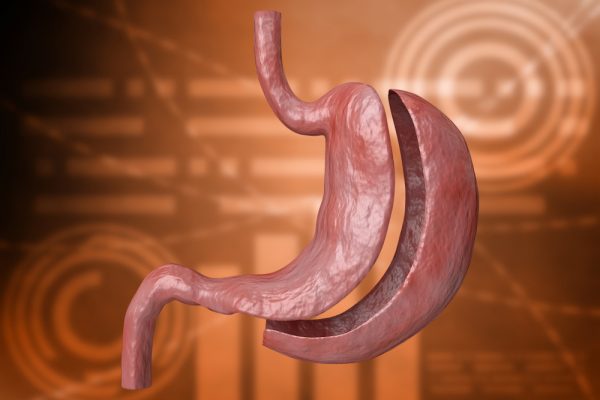There’s this misconception that gastric sleeve patients take “the easy way out” by opting to undergo surgery. Of course, if you have any familiarity with the bariatric community, you know this couldn’t be further from the truth. The hard work really begins after surgery, with patients required to follow a strict post-op diet, adopt new behaviours, and make all sorts of adjustments to their lives. Gastric sleeve isn’t as easy as many suspects, but there are daily habits you can do as a sleeve patient to make your journey easier. We compiled 10 daily habits of successful gastric sleeve patients incorporated into their lives. Read on to learn more!
1. Drink 8+ Cups of Water
It is very important to stay hydrated before and after surgery. It is recommended that sleeve gastrectomy patients aim to consume over 8 cups (64 ounces) of fluids per day, with the preferred choice being water.
Water is vital for recovery post-op for a number of reasons: water helps to break down stored fat, promote kidney function, maintain proper muscle tone, prevent sagging skin, and relieve constipation. One of the habits of successful gastric sleeve patients is to make it a point to hit their daily water goals.
2. Limit Snacking
Following bariatric surgery, a patient’s stomach pouch has been drastically reduced, meaning food intake is limited. Falling into the habit of grazing or unhealthy snacking can end up being very counterproductive.
With limited space, it’s important to fill up on proper nutrients during mealtimes rather than snacking throughout the day. If you’re not careful, snacking can slow down your weight loss or even put it on pause. This being said, there is a difference between healthy and unhealthy snacking. The former concerns a mindful selection of snacks between meals with consideration of nutritional quality resulting in an energy boost; the latter is mindless and more related to emotional triggers, often resulting in overconsumption of calories.
3. Consume 60 to 80 Grams of Protein
Another daily habit of successful gastric sleeve patients is that they consume an adequate amount of protein. We recommend patients aim for somewhere between 60 to 80 grams a day.
Protein is necessary for proper healing of your incision and your new stomach, and is also important for keeping muscle mass during weight loss. Not enough protein in your diet can result in poor healing, hair loss, and an overall decrease in energy. You can read more about protein and gastric sleeve diet here.
4. Complex Carbs Over Simple Carbs
While exact carbohydrate levels needed for bariatric patients have not been defined, it is usually recommended that patients aim for around 90 – 130 g of carbs a day, depending on how far post-op they are.
Successful gastric sleeve patients prioritize complex carbs over simple carbs when it comes to reaching this goal. Simple carbs, a.k.a simple sugars, have a greater and quicker impact on blood sugar levels compared to complex carbs.
Simple carbs include processed flour and sugar products like candy, soda, cookies, etc. Complex carbs, on the other hand, include starches and fiber and take more time to digest. They include whole grains, fruits and vegetables, as well as lentils and beans. Successful gastric sleeve patients tend to reach for complex carbs rather than simple carbs as the former has the ability to keep them feeling fuller for longer.
5. Limit Processed Foods
Processed foods aren’t typically the healthiest. They often contain large amounts of sugar and can contain hidden ingredients, making it difficult to know exactly what you are consuming. Successful gastric sleeve patients seem to limit their intake of processed foods, instead opting for whole foods when possible.
6. Plan Meals and Snacks
Meal prepping post-op can really be a game changer! Not only can planning out meals in advance save you from unnecessary snacking throughout the day, but it is also a great way to keep you in control of and stay on track with your nutrition intake.
7. Eat Slowly
By eating slowly, you allow your body the chance to tell you when it’s full and to prevent overeating — as long as you’re listening to it! Using a hunger-fullness scale can help you to better recognize your body’s hunger cues. Additionally, if you have trouble slowing your pace, try setting down your cutlery in between bites to help slow things down.
8. Vitamins For Life
Bariatric patients need to take vitamins daily following their procedure. Successful gastric sleeve patients take 1 to 2 chewable tabs or liquid multivitamin supplements daily for a lifetime to ensure they are always getting the proper nutrients. Our patients receive one month of vitamins free as part of our comprehensive 6-year gastric sleeve after-care program.
9. Exercise 30 Minutes
Exercising after gastric sleeve surgery is one of the key components to weight loss success. Although there is no one size fits all plan, one of the habits of successful gastric sleeve patients is to exercise a minimum of 30 minutes a day.
10. Use Stress Reduction Strategies
Many gastric sleeve patients have a complicated relationship with food and may have used or continue to use food as a coping mechanism to deal with stressful situations or unwelcome emotions. It can be difficult to cope with stress while trying to balance all the changes that come with gastric sleeve surgery.
One of the most common ways that stress can manifest post-op is through the urge to stress eat. The most successful gastric sleeve patients work out a strategy to manage everyday stress levels so as to avoid any negative coping behaviours. If you are struggling with managing stress levels following weight loss surgery, check out some of these articles.
Regarding Daily Goals
After weight loss surgery, we understand that there are plenty of new changes occurring at once. For some, this will be the first time you are tracking things like water and protein intake. If you are unable to meet all of your daily surgeon-recommended goals, that is okay! It will be difficult to hit your water and protein targets every single day and chances are you won’t. This is nothing to get discouraged about. While these goals are recommended to optimize your health and healing, it’s worth noting that these are simply goals; try your best to achieve them, but don’t worry if you can’t always.
Ready to start your weight loss journey? We can help. Our highly experienced Toronto gastric sleeve surgery specialists and knowledgeable care team are ready to support you – book your free consultation today and talk with a member of our surgical team to learn more about gastric sleeve and post-surgery adjustments.



